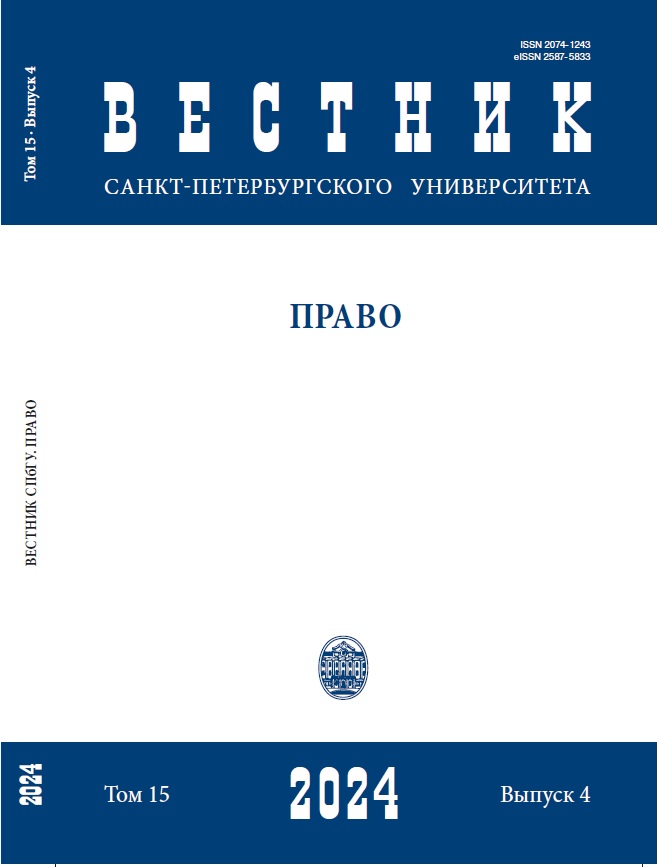Public danger in the modern doctrine of criminal law: Inverse development trends
DOI:
https://doi.org/10.21638/spbu14.2024.405Abstract
One of the topical and timely directions in the development of criminal law science is the expansion of doctrinal ideas about the essence and content of public danger. Taking into account the influence of socio-political processes on criminal legislation and the practice of its application, a rethinking of the conceptual foundations of the theory of social danger is required. In the work, on the basis of identifying dialectical contradictions, regular trends in the development of social danger as a criminal law phenomenon are determined. Such opposites are recognized as the theory of a socially dangerous state of an act and the theory of a socially dangerous state of a person as the basis for criminal liability. Meanwhile, the presented technique also makes it possible to identify gaps and shortcomings in criminal legislation that reduce the effectiveness of legal regulation in the criminal law sphere. As a result of rule-making work, new legislative constructions are fixed in the Criminal Code of the Russian Federation, which contradict not only the principles of criminalization, but also the principles of criminal law. The most problematic issues of this order include: criminal law prohibitions that provide for liability for a socially dangerous state of the individual; norms of criminal law providing for an unjustified reduction in the public danger of an act; expansion of compositions with administrative prejudice. They force us to raise the question of the expediency and necessity of their introduction into the criminal law legislation. In the course of the study, the authors substantiate the idea that the criminal law phenomenon of “social danger” is characterized by inverse development trends. The analysis shows that this type of development is characterized by recurring qualitative changes that are present in the criminal law (reducing or increasing social danger) or indicating its loss, which are based on dialectical contradictions. The authors come to the conclusion that there is a dualism in the understanding of public danger, which is recognized as the basis for criminal liability, which is directly enshrined in the construction of the norms of the Special Part of the Criminal Code of the Russian Federation.
Keywords:
public danger, crime, grounds for criminal liability, administrative prejudice, status of the individual, criminal law
Downloads
References
Downloads
Published
How to Cite
Issue
Section
License
Articles of "Vestnik of Saint Petersburg University. Law" are open access distributed under the terms of the License Agreement with Saint Petersburg State University, which permits to the authors unrestricted distribution and self-archiving free of charge.






